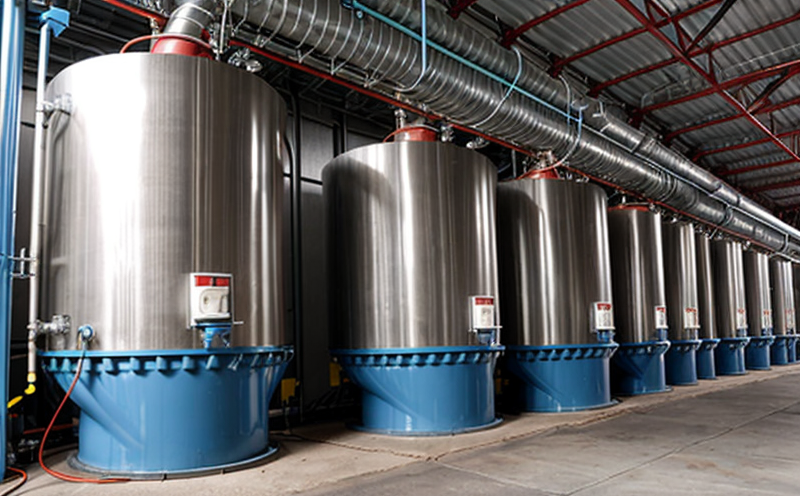Creep resistance testing of materials in power plants
Ensuring the Reliability of Power Plants Why Creep Resistance Testing Matters
Power plants are the backbone of modern energy production, providing a significant portion of the worlds electricity. As these facilities continue to play a vital role in meeting global energy demands, it is essential that their components and materials withstand the stresses of high temperatures and pressures for extended periods. One critical aspect of ensuring power plant reliability is creep resistance testing of materials.
What is Creep Resistance Testing?
Creep resistance testing is a laboratory service that evaluates the ability of materials to resist deformation under constant stress over an extended period, typically at high temperatures. This type of testing is particularly relevant for power plants, where components are subjected to extreme conditions that can lead to material degradation and failure.
Why Creep Resistance Testing Matters
Power plants rely on various equipment and components to operate efficiently and safely. Some examples include turbines, generators, pipes, and valves. These materials must be capable of withstanding high temperatures, pressures, and stresses without compromising their structural integrity or performance. If a material fails to resist creep, it can lead to catastrophic consequences, including downtime, repairs, replacements, and even accidents.
The Benefits of Creep Resistance Testing
Using Eurolabs creep resistance testing services offers numerous benefits for power plant operators and manufacturers
Improved Reliability By evaluating the creep resistance of materials, you can identify potential weaknesses before they become a problem, ensuring your equipment operates reliably and safely.
Reduced Maintenance Costs Regular creep resistance testing helps you plan maintenance schedules and make informed decisions about material replacement or upgrades, reducing unnecessary downtime and expenses.
Increased Efficiency With accurate material properties, you can optimize equipment design, reduce energy consumption, and improve overall plant performance.
Enhanced Safety Creep resistance testing minimizes the risk of accidents caused by material failure, protecting your personnel, assets, and reputation.
Compliance with Industry Standards Our laboratory adheres to industry-recognized standards for creep resistance testing (e.g., ASTM E139, ISO 204), ensuring that you meet regulatory requirements and maintain compliance.
Additional Advantages
Beyond the benefits mentioned above, our creep resistance testing services also offer
Material Selection Optimization By understanding the creep behavior of different materials under various conditions, you can select the most suitable materials for your power plant equipment, improving performance and reducing costs.
Design Verification Creep resistance testing confirms that your designs are adequate to handle expected stresses and temperatures, validating your investment in new equipment or upgrades.
Research and Development Support Our expertise in creep resistance testing provides valuable insights to help researchers and manufacturers develop innovative materials with improved performance.
QA Understanding Creep Resistance Testing
Q What is the difference between creep and stress rupture?
A Creep refers to the gradual deformation of a material under constant stress over time, while stress rupture occurs when a material fails due to excessive stress at high temperatures.
Q How do you conduct creep resistance testing?
A We use industry-recognized standards (e.g., ASTM E139, ISO 204) and advanced equipment to simulate the conditions your materials will experience in service. Our experienced technicians carefully monitor and record the results.
Q Can I perform creep resistance testing in-house?
A While some power plant operators have conducted internal testing, relying on specialized laboratory services like Eurolabs ensures accuracy, precision, and adherence to industry standards.
Q How often should I conduct creep resistance testing?
A The frequency of testing depends on the specific application, material type, and operating conditions. Our experts will recommend a testing schedule tailored to your needs.
Conclusion
In todays fast-paced energy landscape, power plant reliability is more critical than ever. By partnering with Eurolab for creep resistance testing services, you can ensure that your materials meet the demands of high-temperature applications, reducing the risk of material failure and minimizing downtime. Trust our experienced team to provide accurate results, expert guidance, and a comprehensive understanding of your materials capabilities. Let us help you optimize your power plants performance, safety, and efficiency.
Eurolab is committed to delivering exceptional laboratory services that meet the evolving needs of the energy industry. Our expertise in creep resistance testing helps power plant operators make informed decisions about material selection, design verification, and maintenance scheduling. Contact us today to learn more about how our services can benefit your business.




